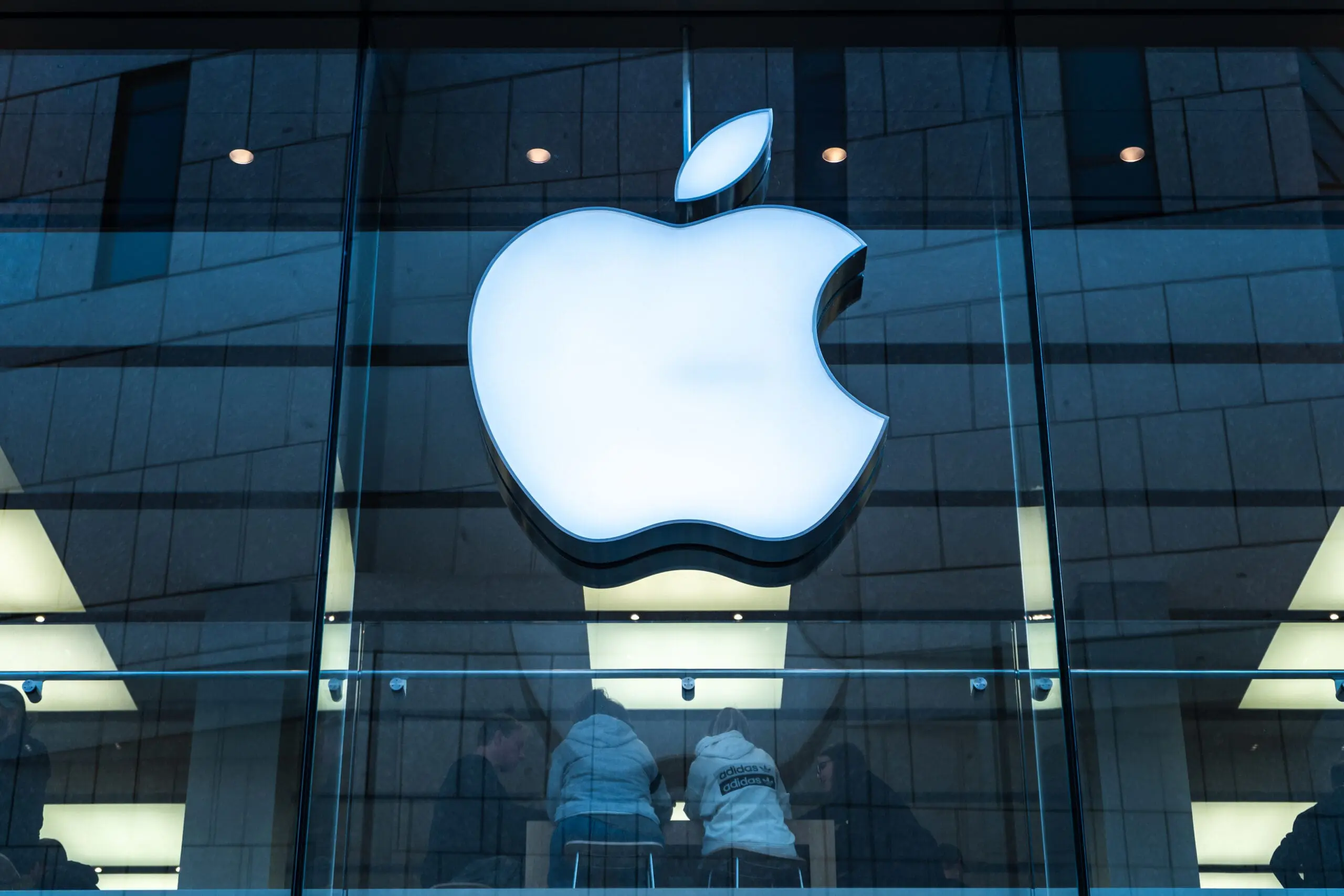Apple making big App Store changes as EU Digital Markets Act kicks in
European Commission’s sweeping new powers to rein in big tech will give European consumers more choice
Apple is opening small cracks in the iPhone’s digital dominance as part of a regulatory clampdown in Europe that is striving to give consumers more choices.
The overhaul which is being rolled out in the European Union today represents the biggest changes to the Apple’s App Store since its launch in 2008.
Among other things, customers in Europe can download iPhone apps from stores that are not operated by Apple and can access alternative ways to pay for in-app transactions.
The measures are taking effect days after EU regulators fined Apple £1.5 billion for stifling competition in the music-streaming market.
Lesley Hannah, a partner at law firm Hausfeld, said:
‘The Digital Markets Act addresses important aspects of Apple’s anti-competitive conduct but only for the benefit of European customers. This is why our action against Apple on behalf of Dr Rachael Kent is so important to UK consumers and businesses.’
Dr Rachael Kent, a digital economy and society lecturer at King’s College London and host of the Digital Health Diagnosed podcast, is waiting to go to trial in January 2025 with her £1.5 billion lawsuit against Apple on behalf of UK consumers and businesses for excessive App Store charges.

Apple clashes with the EU in its attempt to tackle big tech dominance
European regulators are hoping the changes mandated by the Digital Markets Act, or DMA, will loosen the control that big tech’s ‘digital gatekeepers’ have gained over the everyday products and services that consumers and businesses use.
Apple has said the new regulations risk creating new avenues for hackers to steal personal and financial information stored on the devices for iPhone users in Europe.
Apple is warning that ‘the changes the DMA requires will inevitably cause a gap between the protections that Apple users outside of the EU can rely on and the protections available to users in the EU moving forward.’
Criticisms over the way Apple is complying with the DMA
Some smaller tech companies such as music-streaming service Spotify and video-game maker Epic Games are attacking the way Apple is complying with the DMA as little more than a facade that is making a ‘mockery’ of the regulations’ intent.
‘Rather than creating healthy competition and new choices, Apple’s new terms will erect new barriers and reinforce Apple’s stronghold over the iPhone ecosystem,’ Spotify, Epic and more than two dozen other companies and alliances wrote in a letter this month to the European Commission, the EU’s executive arm overseeing the DMA.
Epic, which is behind the popular Fortnite game, also contends that Apple is already brazenly violating the DMA by rejecting an alternative iPhone app store it planned to release in Sweden.
In response, EU regulators said on Thursday that they wanted to question Apple over allegations it had blocked Epic’s app store. Apple said it ‘chose to exercise that right’ to boot the app store based on Epic’s past behaviour.
Changes in Europe for Google and Facebook
Europe’s shifting digital landscape is also forcing changes for other technology giants such as Google and Facebook, but the new regulations strike at the core of Apple’s philosophy of maintaining control over every aspect of its products.
The DMA will see consumers in the EU now get new choices for default browsers and search engines, where to download iPhone apps and how their personal online data is used.
The new rules have broad but vague goals of making digital markets ‘fairer’ and ‘more contestable’. They are kicking in as efforts around the world to crack down on the tech industry are picking up pace.
UK government to clamp down on big tech dominance
The new Digital Markets, Competition and Consumers Bill that’s currently working its way through UK parliament, and is expected to come into force in the Autumn, recognises the problem of big tech market dominance for UK consumers.
Amongst other powers, the bill would give the UK competition watchdog more power to hand down hefty fines to global companies like Apple, Amazon and Google of up to 10% of their global turnover.
The government is claiming that the bill is expected to save UK consumers £9.7 billion over 10 years. But regulators can’t directly award compensation to consumers who have been left out of pocket because of anti-competitive practices.
Compensation for UK consumers left out of pocket by big tech companies
This is where the collective action regime in the UK – which came into force under the Consumer Rights Act 2015 – plays an important role in consumer protection.
It enables consumers to hold big companies accountable for abusing their dominant position in the market without consumers having to foot the bill for legal action.
Lawsuits against these big tech companies are claiming that UK consumers have lost billions as a result of abusing their dominant market positions.
Related claims

Google Search
Google is accused of anti-competitive behaviour by shutting out search engine competition in £7 billion lawsuit affecting 65 million UK consumers.

Amazon
Do you shop using Amazon’s marketplace at amazon.co.uk? You could be eligible for compensation. Sign up to stay updated.

Google Play Store
Google faces a £920m consumer claim for excessive Play Store charges. Sign up for updates if you bought apps on your android since 1 October 2015.

Apple App Store
Apple faces allegations of excessive App Store charges of £1.5bn. Sign up to stay updated if you bought apps on your iPhone or iPad since 1 October 2015.

Facebook faces a £2.1bn legal claim that alleges it exploited 46m UK users by unfairly profiting from their data. Sign up to stay updated.

Apple iPhone
Apple accused of selling iPhones with defective batteries that caused performance problems in £853m legal claim. Sign up for updates.


